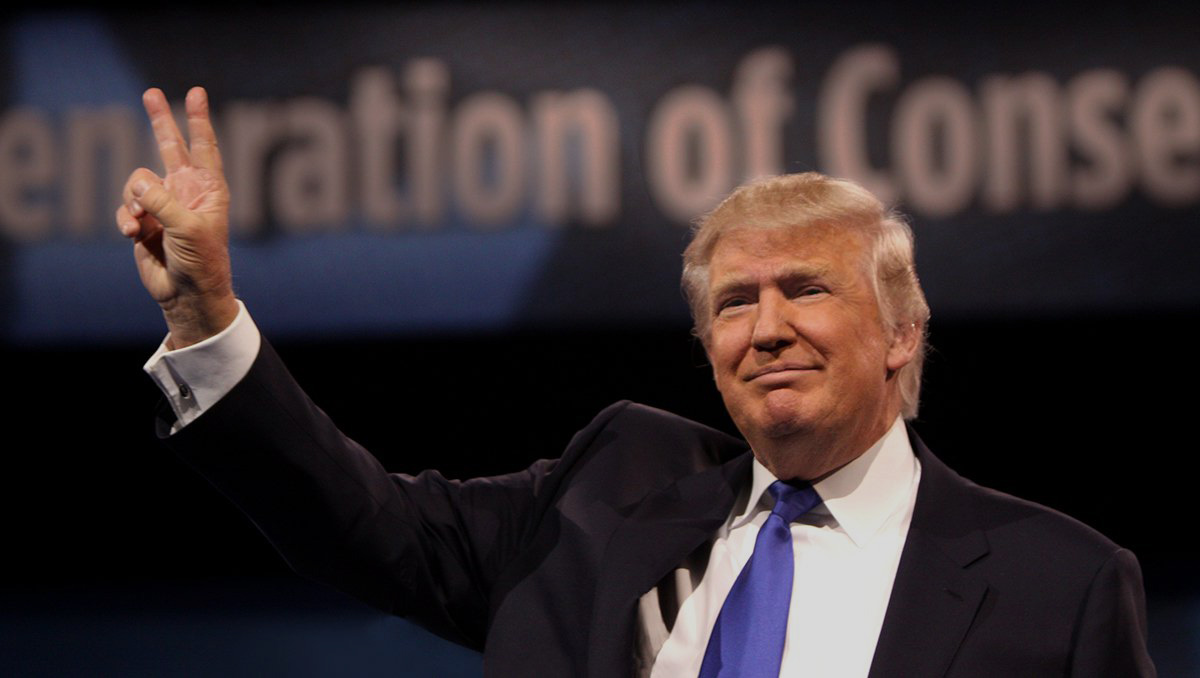Trump Budget Threatens State Spending
Impact could be huge: 29 percent of state budget funded by federal grants.
Timely question: What happens to state government spending, if President Donald Trump and Congress pass a federal budget that slashes spending for everything but the military, national security, Social Security and Medicare? That’s what the President’s proposed budget does.
One answer: Raise state taxes or cut state government services, since the non-partisan Legislative Fiscal Bureau (LFB) reports that a stunning $22.05 billion – or 28.9 percent of Gov. Scott Walker’s proposed 2017-19 budget – will come from Washington.
An early test of what happens when federal aid is lost will play out soon. Federal funding from the 2002 Help America Vote Act pays for 22 jobs at the state Elections Commission. But that federal cash ends on July 1, 2018.
Walker’s proposed budget — completed before Trump’s proposed budget cuts were announced — funds only 16 of the 22 at-risk Elections Commission jobs.
In a letter to legislators, elections commissioners warned that losing six workers – about 20 percent of its workforce – “will significantly curtail the agency’s ability to provide vital and timely services to candidates, county and municipal election officials and voters.”
It would cost state taxpayers more than $2 million a year to pay for the 16 workers, which amounts to pennies in a two-year state budget of $76.41 billion.
But the stakes go up dramatically in the debate over replacing lost federal aid. The President’s budget would cut $300 million for Great Lakes restoration, leaving just $10 million – a cut governors and lawmakers from Midwest states that voted for Trump oppose. And, would state Capitol politicians replace $3.6 billion in anticipated federal cash over the next two years for the UW System?
From LFB’s summary of the governor’s budget, here are the state agencies expecting more than $1 billion in federal aid by mid-2019, or over the period of the next state biennial budget:
*Department of Health Services (DHS): $12.29 billion. Most of that federal cash will go to pay 59 percent of operating costs of Medicaid, which provides health and personal care for 1.1 million poor, elderly, and disabled Wisconsin residents. Medicaid helps one out of every five Wisconsinites.
Walker’s budget calls for DHS to spend a total of $24.44 billion over the next two years, so half of it would come from Washington.
The future of Medicaid was part of the fight in Congress over health-care reform. Republicans want to give states fixed amounts to run their Medicaid programs. But advocates for the poor and disabled say that would cut Medicaid spending in Wisconsin by 25 percent over 10 years.
*UW System: $3.63 billion. Walker’s budget calls for the UW System to spend $12.42 billion over the next two years, so federal aid would amount to almost 30 percent of the system’s budget. One in seven UW System workers is paid with federal dollars.
*Department of Transportation: $1.76 billion. Federal aid is also expected to provide 30 percent of WisDOT’s budget through mid-2019. But President Trump’s push to get Congress to approve a $1-trillion investment in the nation’s infrastructure – including highways and bridges – means federal aid is likely to go up.
*State Department of Public Instruction (DPI): $1.43 billion. Federal aid would only total 12 percent of DPI’s two-year budget of $13.84 billion, since most of it is direct aid to K-12 schools. But President Trump’s budget would put more money into private schools, renewing a controversy in Wisconsin that began in 1990, when School Choice became law.
*Department of Children and Families/ (DCF): $1.43 billion. Federal aid would make up 55 percent of DCF’s two-year budget, putting the agency’s efforts to protect children and low-income parents at risk, if its Washington subsidy is cut.
Todd Berry, president of the Wisconsin Taxpayers Alliance, said the debate over federal subsidies is dominated by the future of Medicaid and huge federal grants won by UW researchers.
Although federal aid will account for 28.9 percent of state government spending over the next two years, other states are much more dependent on Washington cash, Berry noted.
“We’re vulnerable,” Berry said. “But we’re not as vulnerable as some other states. I don’t think we should freak out in panic, at this point.”
Steven Walters is a senior producer for the nonprofit public affairs channel WisconsinEye. Contact him at stevenscwalters@gmail.com
The State of Politics
-
A Wisconsin Political Trivia Quiz
 Dec 15th, 2025 by Steven Walters
Dec 15th, 2025 by Steven Walters
-
The Fight Over Wisconsin’s House Districts
 Dec 8th, 2025 by Steven Walters
Dec 8th, 2025 by Steven Walters
-
The Battle Over On-Line Betting
 Nov 24th, 2025 by Steven Walters
Nov 24th, 2025 by Steven Walters






















In addition to the holes that Steve mentions above, also know that Walker’s budget relied on $22 million in “savings” on state employee health care based on the ACA being repealed. Now that that’s imppoded, there’s another budget hole.
And as the projected “Trump Boom” turns into a bust, that’ll lower that rosy revenue picture. Which means Walker’s cynical, gimmick budget is falling apart on many fronts
Mad-City glut MUST end
And Walker thought he was going to get a windfall. Call up the Koch’s, Governor. See what they will do for you now. They are on to bigger and better things now. You really aren’t so useful to them anymore either.